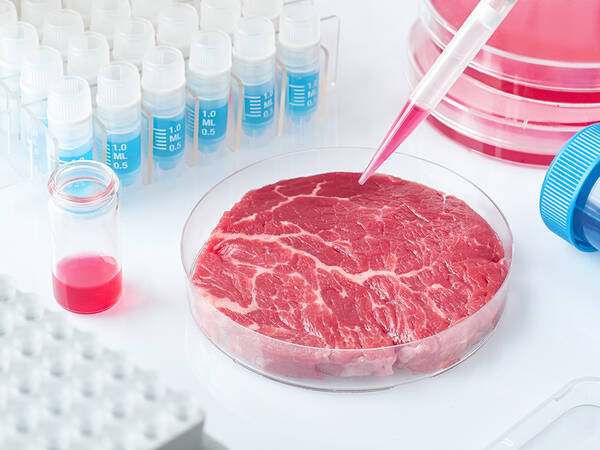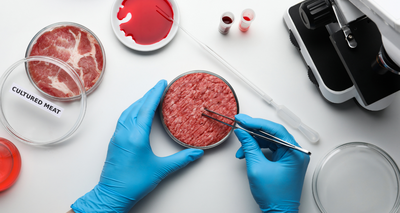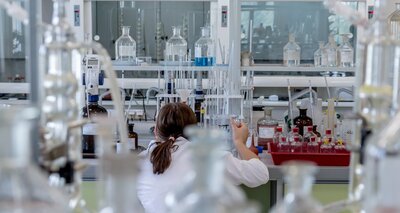

How does single-use technology contribute to developments within cellular agriculture?
The impact of the livestock sector on the environment and climate is extensive. In addition, the world population, like the global demand for animal products, continues to grow year after year and the amount of arable land available is rapidly decreasing. In a recent article on Hollandbio's website, I read that biotech may offer the solution; With an area the size of London, we can supply the entire world population with protein. How does this work, and how can single-use technology contribute to this solution?
Promising technologies
RePlanet, an NGO seeking to open the discussion on issues surrounding the environment, climate change and extreme poverty, critically cited the role of the livestock sector during their COP27 press conference. They also presented a solution: cellular agriculture. A collection of promising technologies that can be used to make familiar meat or dairy products, but in a more animal- and planet-friendly way.
For example cultured meat, where animal products are grown in a laboratory from animal stem cells instead of slaughtering cattle. Or producing biologically identical milk, cheese and other animal proteins using genetically modified microorganisms.
Within my clientele, several companies (often still start-ups) are engaged in forms of cellular agriculture using single-use components and systems. However, the use of single-use technology is not new in this sector. From lab phase to production scale of cellular meat and/or dairy products, single-use solutions are utilized.
With an area the size of London, we can supply the entire world population with protein.
Keeping costs manageable
Single-use technology, whether or not in a hybrid system combined with stainless steel, can help keep costs manageable within cellular agriculture processes. Because you throw away the plastic process materials and systems after use, you do not have to clean them in between uses. To continue to the next batch, only the single-use part of the setup should be. Hereby you save time as well as costs. Compared to a stainless steel setup, less water, cleaning agents and energy are used.
Waste
Of course, by disposing of single-use process materials, you create additional waste compared to stainless steel. Moreover, due to gamma sterilization of the materials everything has to be double packed. Fortunately, progress is being made. For example, some systems on the market already make it possible to reduce waste volume, and there are developments in the recycling of single use systems.
Preventing cross-contamination
An important advantage of single-use technology is risk reduction. Within cellular agriculture, strains of bacteria, yeasts, microalgae or fungi are grown in bioreactors and fermenters (closed systems in which a biological process can be carried out under controlled conditions). If these, and other process components, are not properly cleaned after use, you run the risk of cross-contamination leading to disposing of a costly production batch. Single-use systems can help mitigate these risks. After all, after each batch, the systems are replaced.
Saving time in development phase
Startups are often still in the development phase of their product. In this phase they investigate how to optimize their production process. The use of single-use components and systems make it easy to try out different processes without having to buy expensive equipment right away. Here, the plug-and-play principle of single-use technology offers flexibility and time savings. And I have not even mentioned the QA, QC and validation benefits yet.
It is inspiring to see how companies focused on cellular agriculture want to help keep our planet habitable for everyone, whilst also enabling everyone to maintain their preferred diet. The use of single-use technology makes the process from development to production more flexible, safer and faster. I like to advise my clients on how they can use single-use materials in their specific processes.


